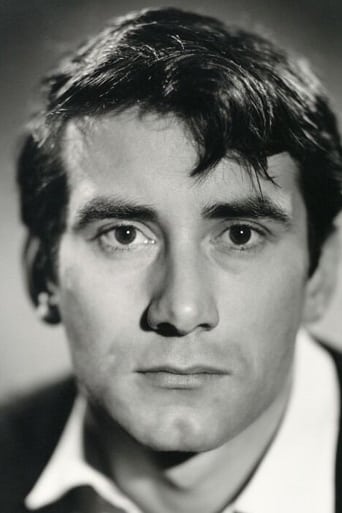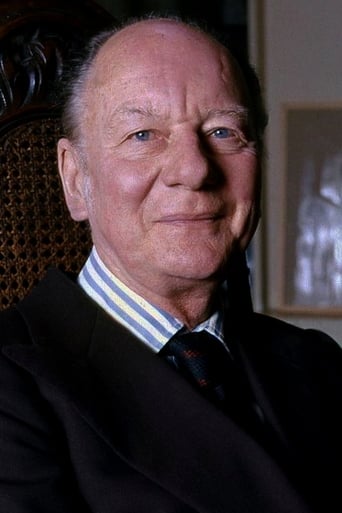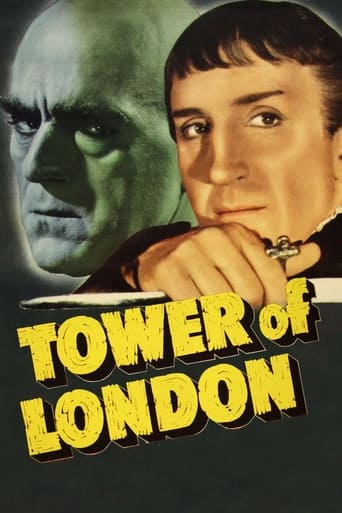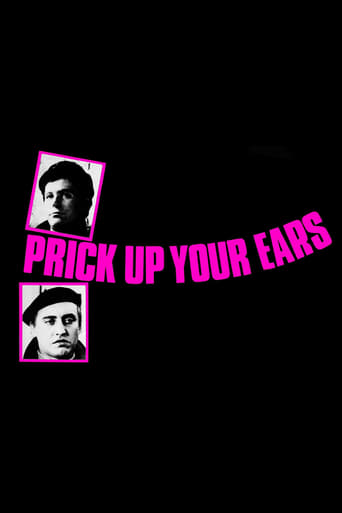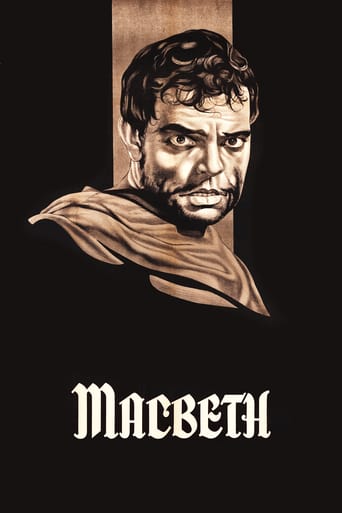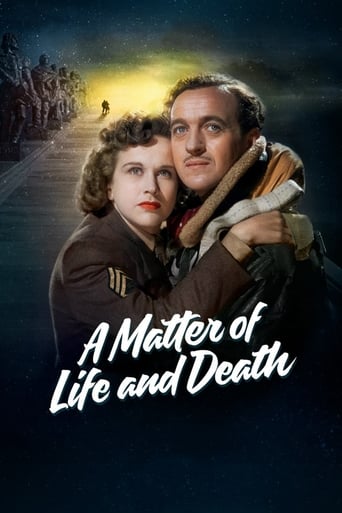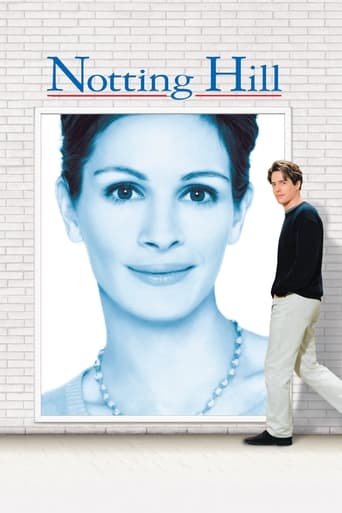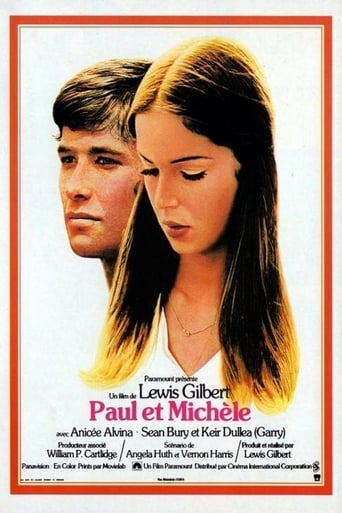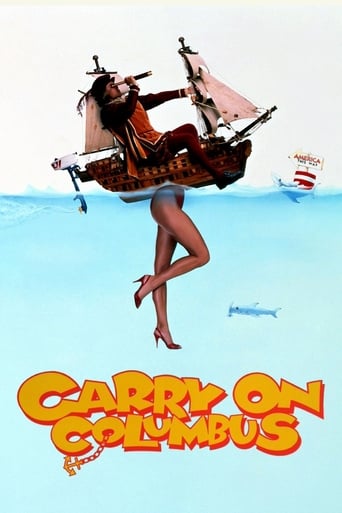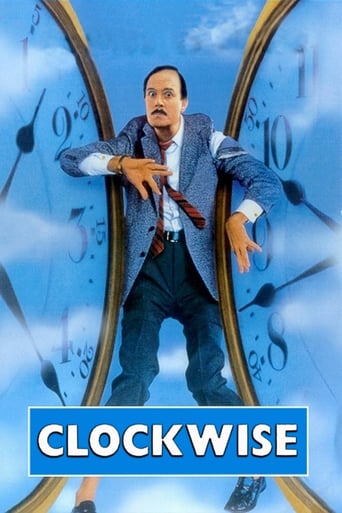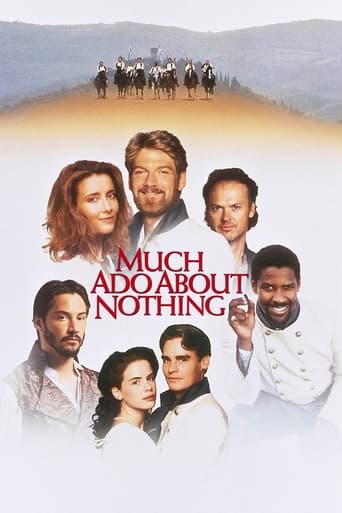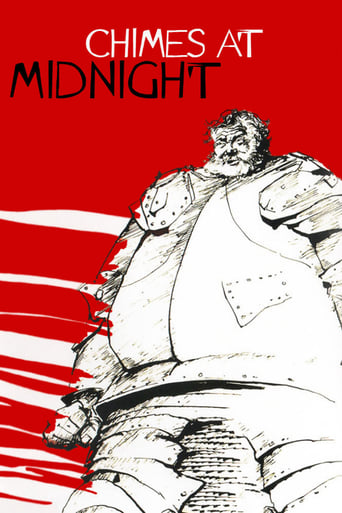
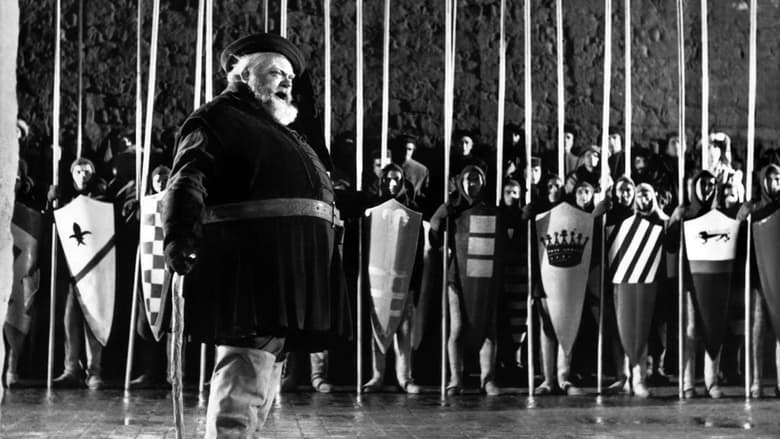
Chimes at Midnight (1965)
Henry IV usurps the English throne, sets in motion the factious War of the Roses and now faces a rebellion led by Northumberland scion Hotspur. Henry's heir, Prince Hal, is a ne'er-do-well carouser who drinks and causes mischief with his low-class friends, especially his rotund father figure, John Falstaff. To redeem his title, Hal may have to choose between allegiance to his real father and loyalty to his friend.
Watch Trailer
Cast


Similar titles
Reviews
What can be said about Chimes at Midnight that hasn't already been said? Orson Welles' ode to Fallstaff, a part that Shakespeare obviously created with Welles' himself in mind, seems to be the perfect culmination of his enormous (no pun intended) career. The meager budget of the film is only reflected in the bad dubbing & sound quality, which is still glaring despite restoration efforts. Welles makes up for this in film noir lit faces, intense battle scenes, and of course, his impeccable acting & connection with the character. With the minute movement of his eye, he can garner laughter or sympathy. While we may be used to chuckling at Falstaff's bumbling, brazen arrogance, Welles also brings us, in the end, to profoundly feel the anguish that lies at the depths of Falstaff's soul. His performance seems to be a psychological study on fatherly influences, quite probably pulling from his experiences with his own Fallstaffian father, among others. Having recently watched My Own Private Idaho, it is hard not to make comparisons & observe the obvious inspiration Gus Van Sant drew from Chimes for his quintessential film. It was also interesting to watch the dramatic battle scenes, which on a shoestring budget are very cleverly shot & edited to feel big budget. This film has probably inspired many larger budget Shakespearean, war & movies in other genres, and yet stands in a league of its own.
First of all, for those who have trouble following the full-on flowing Shakespearean dialogue, get the newly restored DVD from Criterion (2017) with subtitles. Plus many extras. Fans have waited decades for the delays caused by legal wrangling with the estate and other interlopers to finally be settled. I have a few of the earlier bootleg versions which were tolerable if you just had to see Chimes, but the Criterion is what so many fans have been waiting for. Beautiful.The image shown here is from an old bootleg. It would be nice if IMDb updated it from the Criterion release.At last, the movie Welles said he was most proud of, that he would present at the Gates of Heaven should he need make a submission for entering! I somehow landed in London 1969 and in the first weeks I was there we landed on the moon, people were gathered in little crowds around the old black and white tellies; and, Chimes at Midnight was showing. I was so overwhelmed I went back twice, and for decades it haunted me.Shakespeare on stage or in formal style movies seems so distant in time or across a distant divide; but Welles has culled out the meat from the various plays and joined them. The love between the youthful capricious Prince and the wise, vulnerable scoundrel fool is one I could put myself longingly into. How I wanted to share their adventures! Finally the Prince must become the King and put away childhood excess, even lose part of his heart. I always felt I had never grown into a man most of my life, longing for my own lost "Merrie England" of the soul. Ironically, only this year, in my 72nd year could I say that I had finally felt like I was now the man, the King. Yes it took that long! But the joke was on me! Before the year was out I had gotten excessively drunk or high, and twice pratfallen upon my face.This was the final sweetness to the tale: in one year I had gone from the Prince to the King (in my own mind of course), but the droll truth was that I had become Falstaff, the old fool! May your journey with the masterpiece be as special.
CHIMES AT MIDNIGHT is a historical comedy drama film that delves into the intelligence and tradition at the same time. The script contains text from five of Shakespeare's plays; primarily "Henry IV, Part 1" and "Henry IV, Part 2", but also "Richard II" and "Henry V", as well as some dialogue from "The Merry Wives of Windsor". Therefore, any deviation from the standard of Shakespeare can be fatal to some extent. Mr. Welles loves to deviate from certain standards.The legendary Shakespearean character Sir John Falstaff, the notoriously drunken and obese is a charming companion of a young Prince Hal. King Henry IV of England has succeeded Richard II, whom he has killed. Richard II's true heir, Edmund Mortimer, is a prisoner in Wales, and Mortimer's cousins Northumberland, Worcester, and Northumberland's son Hotspur demand that Henry rescue Mortimer. The king refuses, and thus Mortimer's cousins begin to plot Henry's overthrow. The young prince, to the chagrin of his father, spends most of his time at the Boar's Head Tavern, drinking and carousing with prostitutes, thieves and other criminals under John Falstaff's patriarchal influence. However, one day, the young prince will have to become the king.Mr. Welles has tried to put this story between a sense of pride and despair, youth and experience, love and duty. He has adapted a tragicomic plot to a generational relationship. Is socializing with some sundowner and demimonde worthy a place in history? That's the real question in this film. The dialogues are very vivid and can be characterized as a kind of association game. The scenery is striking. Director's imagination and his mockingly exaggeration have inflicted some damage to this film.Orson Welles (Sir John Falstaff) is very good as a boastful cowardly knight and father-figure to Prince Hal. A little drama was played on his face. Keith Baxter as Prince Hal goes through phases of a youthful insouciance and historical obligations. Therefore, a playful young man can become a good and noble king. John Gielgud as King Henry IV is a sharp, cold and politically wise character. Jeanne Moreau as Doll Tearsheet is a prostitute, who will further spice up this soup.Everything is allowed in a loyal false game.
Orson Welles appears in this film larger than ever (ironically, according to the IMDb trivia, he had to slim down to play the role - perhaps there was extra padding, one can only assume). He has the build of a boulder, and the face of the character Hagrid from Harry Potter aged in his 70's. Welles was in his late 40's, turning 50, by the time he took on the role of Sir John "Jack" Falstaff, the man who held his own court and council during the years of Henry the IV, but was sort of an outsider. He was a fool, a liar, a sweet guy who could get the attention of men and woman far and wide - from stutterers to the likes of women played by Jeanne Moreau - and yet he was never really 'apart' of the kingdom, that stuffy place where Henry (as played by a platitudinal John Gielgud) is in ill-health from the beginning of this story - even as he, along with his son the Prince Hal (later Henry the Fifth) - controlled the kingdom from outside invading influences.I saw the film with someone who didn't really get what many of the characters want or any dimensions to them (outside of Falstaff, who is a force of nature). I can understand it. It's hard to get a handle at times on this story or even some of these characters; some of that, frankly, we can put on the Shakespeare dialog, which is beautiful and beguiling and deep and existential and poetic and, in 21st century times, slippery almost. But for me, the emotional component was always there, and Welles was a Mega-Master of Shakespeare even back in the 1930's (re his productions of Macbeth, Julius Caesar, even the rough draft of this film, Five Kings). So by the time he got to this, rough-hewed as it is, Chimes at Midnight is like his Final Dissertation as a master filmmaker.Can I just take a moment out to talk how great Welles is here? He commands every second on screen. It can be said he hams it up. Can you blame him really, if it falls into that? I read more depth though in nearly every scene; even in those where Jack Falstaff hears people mock him, he takes it in stride, and can give it as good, or better, than he takes. His tongue is so sharp, and his reactions so BIG, that it's easy to read this as campy. But it's a deeply felt performance, with Welles swallowing this character into his solar plexus. He never plays Falstaff as being as regal as, say, Henry IV, or as Hotspur Percy, who is like many a Game of Thrones character (to put it in modern parlance) who just wants that friggin crown and wants it all his own.I think the characters know what they want, or are trying to figure it out far as it goes. If there can be a legitimate criticism it's that Baxter, as Hal/young Henry V, is kind of the weak link among the cast. Albeit this is a cast with Welles, Moreau, Gielgud, Fernando Rey in a small but commanding role as another warrior. But he takes up a lot of screen time, and is best when having to do fierce reaction or passive poise - enjoying the company of Falstaff he's fine but but totally convincing. No matter - when someone like Welles or someone like Gielgud or Rodway as Percy or Rutherford as the Mistress mining the place Falstaff calls his court... it makes the journey much more entertaining. When you have a Shakespeare adaptation, especially one as ambitious and wild as this one, you got to have a cast that can pull out the emotional connections. They're here.And if Welles really pulls out all the stops with his acting - it may even be his dare I say most towering, monolithic work as an actor, with the range going from bawdy comedy and sweet kindness to shattered tragic tones and bewilderment and shock, everything is there - the filmmaking reaches up to it. There is a battle sequence midway through the film as Henry's troops fight oncoming invaders. My God. Just... if you can get a copy of the film, if nothing else that sequence holds up as one of the two or three essential battles on film. There's chaos, there's fast cutting (yet, even with Welles, you always can see what's going on, far as it goes), and yet there's a story going on as Falstaff, who is on the sidelines of the action, tries not to get involved and even plays dead, and Welles is really crafty in cutting back to this. He apparently only had 100 men at a time to work with. He makes it look like triple that - and all the mud and blood that goes with the dirtiness of an epic battle.It's a filmmaker who loves Shakespeare so deeply, yet he connects it with his own life as an artist and doesn't lose that. It may not matter to some, but I liked that this could be a metaphor for not just Welles but anyone on the margins looking in, unable to break through (especially at the end, as Henry V finally reaches the throne). The energy and force of the direction, the acting, the writing, it triumphs over technical flaws - the syncing of dialog in parts, the fact that parts just connect enough, as it did with Othello in the filmmaking - and in a couple of the performances in spurts. It ranks with the major Welles films, and I do hope it gets to DVD soon (I lucked out with a Welles retrospective that kind of had to play it to be complete) so I can revisit it; I have a feeling, with time, it'll deepen like Kane with appreciation for the craft and ideas on display.



